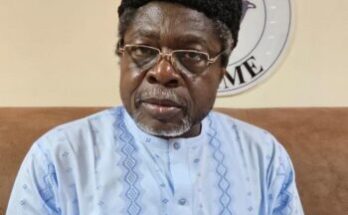By Rogers Edor Ochela
Over the years, the dream of the founding fathers of Abuja has been gradually eroded in such a way that public infrastructure meant to set the city apart from other cities in Nigeria have virtually collapsed. Embarrassingly, while some of the roads are becoming too congested due to heavy traffic; potable water is not readily available in most parts of Abuja, except for highbrow areas like Maitama, Asokoro and Wuse. In addition, good health and educational facilities are becoming hard to come by for most residents.
Analysts have rightly attributed the chaos and collapsing infrastructures in the nation’s capital city to two major variables. One is the high influx of people into the territory, and the other is paucity of funds to drive accelerated development.
Apparently worried by this untoward reality and the unacceptably high incidence of unemployment nay dearth of infrastructural facilities in Abuja; the Senate Committee on Federal Capital Territory headed by a former National President of Nigeria Union of Journalists (NUJ), Senator Smart Adeyemi, decided to intervene with two bills geared towards boosting the revenue profile of the city as well as restructuring the administration of the FCT.
The bills, sponsored by Adeyemi are FCT Board of Inland Revenue Service Bill and FCT Property Tax Law Bill, received the overwhelming support of majority of his senatorial colleagues, a development that led to the recent passage of the bill of property tax. That the bill enjoyed the overwhelming support of the senators is a clear indication of its desirability.
 At this juncture, the pertinent question to ask (and answer) is: what is property tax? From what is obtainable in other climes, property tax is a levy on property that the owner is required to pay. It is levied by the governing authority of the jurisdiction in which the property is located; it may be paid to a national government, a federated state, a county or geographical region, or a municipality. Multiple jurisdictions may tax the same property. This is in contrast to a rent and mortgage tax, which is based on a percentage of the rent or mortgage value.
At this juncture, the pertinent question to ask (and answer) is: what is property tax? From what is obtainable in other climes, property tax is a levy on property that the owner is required to pay. It is levied by the governing authority of the jurisdiction in which the property is located; it may be paid to a national government, a federated state, a county or geographical region, or a municipality. Multiple jurisdictions may tax the same property. This is in contrast to a rent and mortgage tax, which is based on a percentage of the rent or mortgage value.
There are four broad types of property: land, improvements to land (immovable man-made objects, such as buildings), personal property (movable man-made objects), and intangible property. Real property (also called real estate or realty) means the combination of land and improvements. Under a property tax system, the government requires and/or performs an appraisal of the monetary value of each property, and tax is assessed in proportion to that value. Forms of property tax used vary among countries and jurisdictions. Real property is often taxed based on its classification.
A special assessment tax is sometimes confused with property tax. These are two distinct forms of taxation: one (ad valorem tax) relies upon the fair market value of the property being taxed for justification, and the other (special assessment) relies upon a special enhancement called a “benefit” for its justification.
This bill, when operational, will ensure that privileged Nigerians with properties in Abuja are made to contribute to the overall development of Nigeria through payment of property tax. In addition, it will enhance the standard of living of the poor as a way of addressing the unacceptable high rate of unemployment ravaging the Nigeria economy, while part of the proceeds would be used to pay contractors constructing roads in Abuja.
Based on the peculiarity of our environment, the following categories of properties are exempted from paying the tax: “Properties owned and occupied by a religious body and used exclusively for religious or congregational worship, religious education or similar purpose; real property owned by any person and used as a non-profit making cemetery or burying ground.
Senate President David Alechenu Mark, while appreciating the imperativeness of the bill, declared that apart from expanding the revenue base of FCT, it will also lead to increased pace of provision of basic infrastructure and amenities to residents.
He pointed out that global practices cited in the FCT Administration memorandum, has shown that Federal Districts such as Washington D.C., Brasilia, Canberra, etc., have shifted from a centralized tax regime to a decentralized system.
According to him, “city states like Berlin, Vienna and even Lagos, Nigeria’s former capital city have decentralized revenue collection.
“We therefore have no other option than to explore untapped sources of funding to meet the ever growing challenges of providing for the social needs of the teeming population in terms of education, healthcare, water, environment, transportation,” he said.
Interestingly, many of residents of Abuja have hailed the passage of the Abuja property tax bill, which they aver will generate adequate funds that will significantly address critical infrastructural challenges confronting the city.
While residents of FCT are waiting for when this all-important law will become operational, expectations are rife that the days of dearth of infrastructural facilities in the nation’s capital city are numbered.
Ochela, former Editor of Abuja Today and Peoples Power Newspapers, wrote from Abuja. Email: [email protected]



